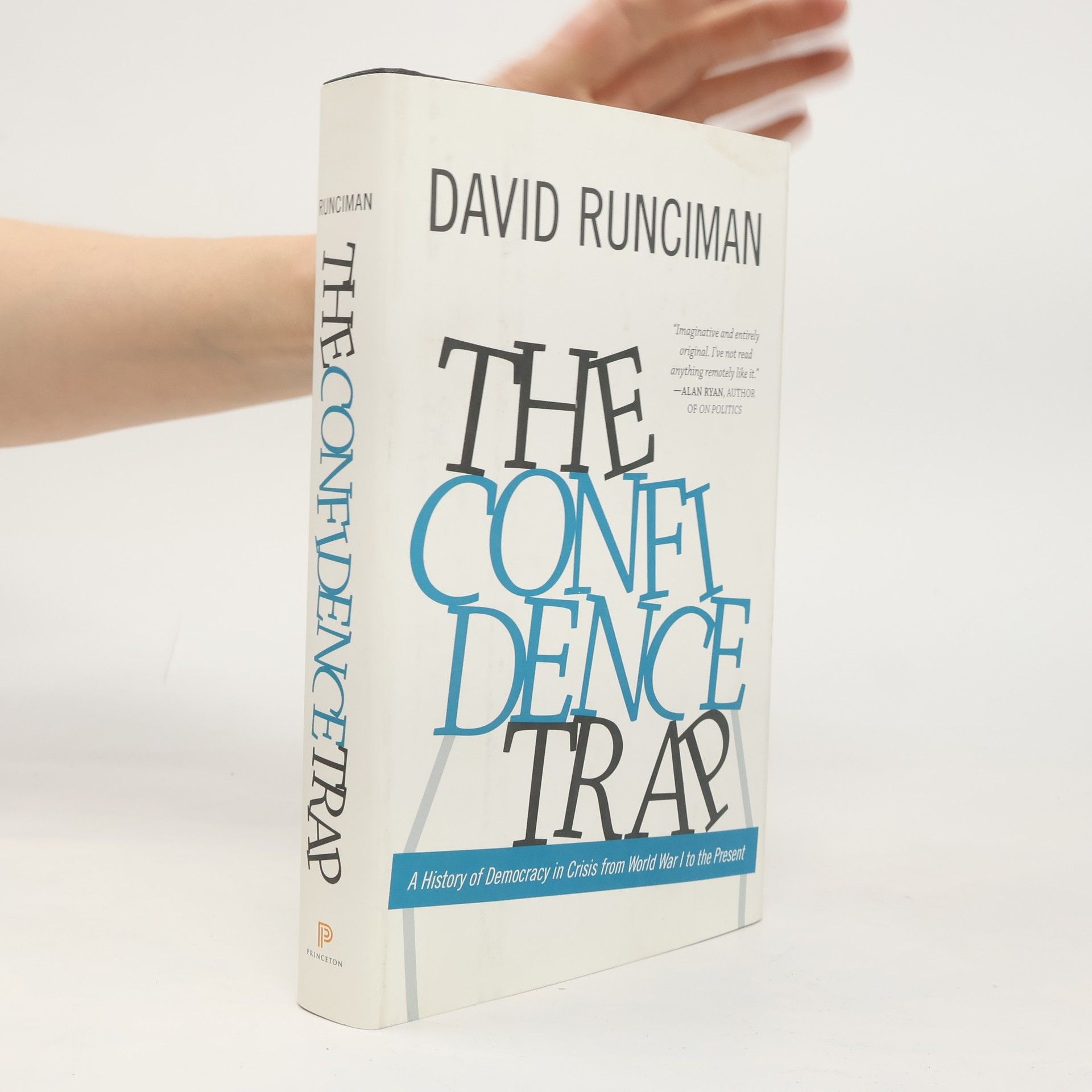Alles hat ein Ende: Was für das menschliche Leben gilt, trifft auch auf politische Systeme zu. Zwar haben die westlichen Demokratien heute ihren Zenit überschritten, aber sie sind noch nicht an ihr Ende gelangt. Sie stecken in der Midlife-Crisis, sind erschöpft und schwerfällig. Donald Trump wird die Demokratie nicht zugrunde richten, so ist David Runciman überzeugt. Viel gefährlicher wird ihr Mark Zuckerberg, der ein System geschaffen hat, das sich von den demokratischen Institutionen nicht mehr kontrollieren lässt. Die Demokratie könnte also eines Tages Opfer des technologischen Fortschritts werden, durch Gewalt oder eine ökologische Katastrophe zu Fall gebracht werden. Dabei stimmt David Runciman nicht in den üblichen Abgesang ein. Ruhig, besonnen und ungewöhnlich elegant beschreibt er die Geschichte, Gegenwart und Zukunft der Demokratie. Sein Buch handelt von ihren Stärken und Schwächen und entwirft verschiedene Szenarien, wie es nach ihrem Ende weitergehen könnte.
David Runciman Bücher






Pluralism and the Personality of the State
- 300 Seiten
- 11 Lesestunden
Focusing on the evolution of English political thought between 1900 and 1933, this book explores the concept of pluralism and its influence on the state's identity. It examines how various political ideas and movements shaped the understanding of governance and individual rights during this transformative period, highlighting key thinkers and their contributions to the discourse surrounding state personality and pluralistic governance.
A primer on political theory from bestselling author and host of Talking Politics David Runciman.
Does it matter if we are ceding power to AI? Especially if we have been there before.
Politics
- 176 Seiten
- 7 Lesestunden
In the first title of an exciting new series one of the world's leading political scientists asks the big questions about politics: what is it, why we do we need it and where, in these turbulent times, is it heading? From the gap between rich and poor to the impact of social media, via Machiavelli, Hobbes and Weber, Runciman's comprehensive short introduction is invaluable to those studying politics or those who want to know how life in Denmark became more comfortable than in Syria.Fusing animation and images from the award winning animators behind RSA Animates, beautifully adapted to both print and digital formats, the Ideas in Profile series boldly reinvents what introductions can and should be in the twenty-first century. Concise, clear, relevant, entertaining, original and global in scope, Politics makes essential reading - and viewing for students and general readers.
Where Power Stops
- 240 Seiten
- 9 Lesestunden
David Runciman grapples with how character defines and limits the holders of the highest offices in the UK and America.
The author unmasks modern politics and reveals the great men and women of ideas behind it. What can Samuel Butler's ideas teach us about the oddity of how we choose to organise our societies? How did Frederick Douglass not only expose the horrors of slavery, but champion a new approach to abolishing it? Why should we tolerate snobbery, betrayal and hypocrisy, as Judith Shklar suggested? From Rousseau to Rawls, fascism to feminism and pleasure to anarchy, this is a mind-bending tour through the history of ideas which will forever change your view of politics today
The Politics of Good Intentions
- 224 Seiten
- 8 Lesestunden
This book explores Tony Blair's desire for historical judgment on early 21st-century political controversies, particularly his alliance with George W. Bush. It contextualizes recent events like the war on terror and Iraq within modern history, critiquing how politicians manipulate history to shape a new world order while emphasizing the importance of understanding contemporary politics in historical terms.
The Confidence Trap
A History of Democracy in Crisis from World War I to the Present
- 408 Seiten
- 15 Lesestunden
Why do democracies oscillate between success and failure? The current financial crisis exemplifies this pattern, where progress often precedes setbacks. In this compelling narrative, David Runciman explores modern democracy through pivotal crises, spanning from the First World War to the 2008 economic crash. Focusing on global history, particularly the United States, the book examines how democracy has weathered various threats, including the Great Depression, the Cuban missile crisis, Watergate, and the collapse of Lehman Brothers. It also highlights the confusion arising from unexpected victories, such as the defeat of German autocracy in 1918 and communism in 1989. Runciman pays close attention to influential politicians and thinkers, including Woodrow Wilson, Nehru, Adenauer, Fukuyama, and Obama. The narrative reveals that while democracies are adept at recovering from emergencies, they struggle to prevent them. The lessons learned often breed complacency, fostering a dangerous belief that democracies can endure any crisis. This "confidence trap" risks leading to an insurmountable crisis, if it hasn't already occurred. Today, democracy faces serious challenges, including debt, the war on terror, the rise of China, and climate change. To survive, it must find a way to escape this confidence trap.

